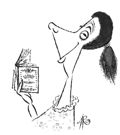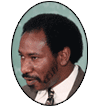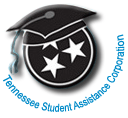Affirmative Action Ban Continues to Inflict Severe Damage on Black Higher Educational Opportunities in California
Despite the Supreme Court’s Grutter ruling in 2003, public universities in California are still mandated under state law not to consider race in their admissions decisions. This law, enacted by public referendum in 1996, continues to have a devastating effect on black higher education opportunities in California.
 This spring the 10 campuses of the University of California accepted a total of 55,000 students. For the first time in history, Asian Americans were the largest group among students accepted for admission. Asian students, who are 11 percent of all high school graduates in California, were 36 percent of all students admitted to the University of California this spring. This spring the 10 campuses of the University of California accepted a total of 55,000 students. For the first time in history, Asian Americans were the largest group among students accepted for admission. Asian students, who are 11 percent of all high school graduates in California, were 36 percent of all students admitted to the University of California this spring.
Blacks made up only 3.4 percent of the students admitted to the University of California’s 10 campuses this year. At the state’s flagship campus at Berkeley, there were 298 black students admitted this year, an increase of 8 percent from a year ago. But blacks made up only 3 percent of all admitted students at Berkeley.
This is less than one half the level that prevailed prior to the enactment of the ban on race-sensitive admissions.
  |
“Back in the 1930s, when colleges first started using the SAT, its purpose was egalitarian: to identify bright but poor young students for scholarships and make an elite university education available to those beyond the moneyed class. How times have changed. Instead of being the great equalizer, the SAT has become a linchpin of the system it was intended to break. Instead of helping colleges and universities discover new talent, it has become just another credential for privileged kids to fight over.”
— an editorial in the Los Angeles Times, April 24, 2006
|
 The States With the Largest Racial Gaps in College Completion Rates The States With the Largest Racial Gaps in College Completion Rates
Nationwide in 2000, 27 percent of white adults over the age of 25 held a four-year college degree. This was 12.7 percentage points higher than the rate for blacks, which stood at 14.3 percent.
But the nationwide racial gap in college completions varies to a large degree among the various states. In 48 of the 50 states of the union, whites are more likely to be college educated than blacks. But in Montana, 33.2 percent of black adults have a college degree compared to only 25.2 percent of white adults. In Vermont, blacks are also more likely than whites to have graduated from college.
Among all the states, the largest difference in college completion rates between blacks and whites is in Connecticut. There, 34.2 percent of white adults have a college degree compared to 13.7 percent of black adults. Other states with large racial gaps are Colorado, Virginia, California, Hawaii, New Jersey, and New York.
University of Virginia Forms Stronger Ties With State’s Historically Black Colleges and Universities
 Last week JBHE reported that the University of Virginia had embarked on a new program which guarantees admission to transfer students who complete a required curriculum at a state-operated community college in Virginia. The new program was designed so that blacks and low-income students with low SAT scores could still gain admission to the university if they demonstrated the ability to succeed at the college level. Last week JBHE reported that the University of Virginia had embarked on a new program which guarantees admission to transfer students who complete a required curriculum at a state-operated community college in Virginia. The new program was designed so that blacks and low-income students with low SAT scores could still gain admission to the university if they demonstrated the ability to succeed at the college level.
In another effort to increase racial diversity on campus, the University of Virginia has established a program with five historically black colleges and universities in the state. Students from the black colleges will be able to participate in summer research programs at UVA with the hope that these efforts will serve as a feeder to graduate programs at the university. Exchange programs will be set up for students from the black colleges to take classes at UVA and for the University of Virginia students to take classes at one of the participating black colleges.
Under the plan there will also be increased interaction among student and social organizations on the campuses. Participating black colleges and universities are Hampton University, St. Paul’s College, Virginia Union University, Virginia State University, and Norfolk State University.
The Best Graduate Programs in African-American Literature
 According to the latest ranking of graduate education programs by U.S. News & World Report, Harvard University has the nation’s top program in African-American literature. Professor Henry Louis Gates Jr., the outgoing chair of the African and African-American studies department, has spent the past 15 years building the nation’s premier program in black literature. The department has experienced many key defections in recent years, but none of the major academic figures who have left Harvard have been in the field of literature, in which Gates himself is a preeminent scholar. According to the latest ranking of graduate education programs by U.S. News & World Report, Harvard University has the nation’s top program in African-American literature. Professor Henry Louis Gates Jr., the outgoing chair of the African and African-American studies department, has spent the past 15 years building the nation’s premier program in black literature. The department has experienced many key defections in recent years, but none of the major academic figures who have left Harvard have been in the field of literature, in which Gates himself is a preeminent scholar.
Princeton University ranked second to Harvard in graduate programs in African-American Literature. Also among the top 10 graduate programs in African-American literature are Duke, Yale, Chapel Hill, Columbia, Berkeley, Cornell, the University of Maryland, and the University of Virginia.
Most Black-Owned Firms in the Field of Educational Services Have a Very Small Revenue Stream
Last week JBHE reported that according to U.S. Census data, in 2002 there were 1.2 million black-owned businesses in the United States. This was an increase of 45 percent from the previous survey in 1997.
Of the 1.2 million black-owned businesses in this country, there are 25,256 firms that are involved in what the Census Bureau calls educational services. These would include private tutors, test coaches, and college admissions counselors. Of the more than 25,000 black-owned educational services firms, slightly more than 24,000 firms are sole proprietorships with no paid employees. The average annual revenue for these black-owned educational service firms is only $9,266.
The Long Shadow of Hurricane Katrina Continues to Haunt Black Colleges in New Orleans
 Hurricane Katrina devastated the campuses of the historically black Dillard, Xavier, and Southern universities last August. The three schools were forced to close for a semester and reopened in January in temporary facilities. Hurricane Katrina devastated the campuses of the historically black Dillard, Xavier, and Southern universities last August. The three schools were forced to close for a semester and reopened in January in temporary facilities.
But the effects of Hurricane Katrina will be felt for years to come.
One of the major difficulties that these three universities now face is in recruiting students to enroll. At Xavier University, the number of applicants this spring was one half the number from a year ago. Dillard is not releasing numbers at this point but a spokesperson told USA Today that numbers are down and that the university expects a smaller entering class than in the past.

Hurricane Katrina's aftermath at Dillard University;
Los Angeles Times photo by Rick Loomis
Alumna of Hampton University Named National Teacher of the Year
 Kimberly Oliver, an African-American kindergarten teacher in Silver Springs, Maryland, was named Teacher of the Year by The Council of Chief State School Officers. Oliver, who teaches at the Broad Acres Elementary School, has students from Vietnam, Africa, Haiti, and Latin America, as well as African Americans in her classroom. All but one of her students speak a language other than English. Kimberly Oliver, an African-American kindergarten teacher in Silver Springs, Maryland, was named Teacher of the Year by The Council of Chief State School Officers. Oliver, who teaches at the Broad Acres Elementary School, has students from Vietnam, Africa, Haiti, and Latin America, as well as African Americans in her classroom. All but one of her students speak a language other than English.
Oliver, 29 years old, is a graduate of Hampton University, the historically black educational institution in Virginia. She did her graduate study at Wilmington College. She will spend the next year traveling the country as an advocate for education.
Appointments
• Charles Greene was named executive director of the White House Initiative on Historically Black Colleges and Universities. He was the director of community and economic development in the office of U.S. Senator Rick Santorum of Pennsylvania.
Greene is a graduate of Virginia Union University. He has done graduate study at the University of Pittsburgh and the University of Pennsylvania.
 • Cheryl Dozier was appointed associate provost for institutional diversity at the University of Georgia. She was the assistant vice president for academic affairs at the Gwinnett campus of the university. A graduate of Fairleigh Dickinson University, Dozier holds a master’s of social work degree from Atlanta University and a doctorate in social work from Hunter College of the City University of New York. • Cheryl Dozier was appointed associate provost for institutional diversity at the University of Georgia. She was the assistant vice president for academic affairs at the Gwinnett campus of the university. A graduate of Fairleigh Dickinson University, Dozier holds a master’s of social work degree from Atlanta University and a doctorate in social work from Hunter College of the City University of New York.
• E. Anthony Rankin, clinical professor of orthopedic surgery at Howard University College of Medicine and clinical associate professor at Georgetown University School of Medicine, was elected second vice president of the board of directors of the American Academy of Orthopedic Surgeons. Under the organization’s rules, Dr. Rankin will become first vice president in 2007, and in 2008 will become the first African American to lead the organization.
 • Michael Powell was elected rector of the College of William and Mary in Williamsburg, Virginia. In this position he chairs the board of visitors, the institution’s main governing body. Powell is the first African American to hold the post in the college’s 313-year history. • Michael Powell was elected rector of the College of William and Mary in Williamsburg, Virginia. In this position he chairs the board of visitors, the institution’s main governing body. Powell is the first African American to hold the post in the college’s 313-year history.
Powell, the son of former Secretary of State Colin Powell, is a 1985 graduate of William and Mary. He holds a law degree from Georgetown University and served for seven years on the Federal Communications Commission, the last four as chairman.
 • Cheryl Burgan Evans was named director of graduate student diversity programs at the University of Virginia. She was associate dean of the graduate school and an associate professor of family studies and social work at Miami University of Ohio. • Cheryl Burgan Evans was named director of graduate student diversity programs at the University of Virginia. She was associate dean of the graduate school and an associate professor of family studies and social work at Miami University of Ohio.
 • Maurice Daniels assumed duty as dean of the school of social work at the University of Georgia. A member of the faculty since 1979, Daniels was serving as the associate dean of social work. He holds a master’s of social work degree and an educational doctorate from Indiana University. • Maurice Daniels assumed duty as dean of the school of social work at the University of Georgia. A member of the faculty since 1979, Daniels was serving as the associate dean of social work. He holds a master’s of social work degree and an educational doctorate from Indiana University.
|
New Tennessee Education Lottery Is Bypassing Those Who Need It Most
 The Tennessee Education Lottery was implemented to raise money to fund college scholarships for students in the state who achieve a score of at least 21 on the American College Testing Program’s ACT test and who maintained a 3.0 grade point average while in high school. The Tennessee Education Lottery was implemented to raise money to fund college scholarships for students in the state who achieve a score of at least 21 on the American College Testing Program’s ACT test and who maintained a 3.0 grade point average while in high school.
But an analysis of state lottery scholarship grants conducted by the Chattanooga Times Free Press finds that the average scholarship award winner in the paper’s readership area comes from a family that has a median income of $71,980, more than twice the average for families in Tennessee. The study also found that even in the state’s poorest counties, many with large black populations, the typical lottery winners come from families with incomes higher than the statewide average and double the median income of all families in the county.
The Tennessee Education Lottery does offer a boost of an additional $1,500 for students who come from low-income families. But the additional money doesn’t help if these students can’t reach the minimum requirement of a score of 21 on the ACT test. Nationwide, the mean black student score on the ACT is 17.
Black Colleges Where the Trend in Graduation Rates Is Down
According to the records in the JBHE database, since 1999 Florida A&M University has shown a 10 percentage point drop in its black student graduation rate. This is the largest decline in graduation rates among the major black colleges and universities. There was also at least a five percentage point decline in the black student graduation rate at Shaw University, Grambling State University, Fayetteville State University, and Lincoln University of Pennsylvania.
Blacks and Other Minorities Now Make Up a Smaller Percentage of Community College Presidents Than They Did Five Years Ago
 A survey presented last week at the annual convention of the American Association of Community Colleges in Long Beach, California, has found that minorities make up a smaller percentage of community college presidents than was the case five years ago. The survey, conducted by George B. Vaughan, a professor of higher education at North Carolina State University, and Iris M. Weisman, an associate professor of higher education at Antioch University, found that in 2006, 13 percent of all community college presidents were members of minority groups. Five years ago 14 percent of all community college presidents were minorities. A survey presented last week at the annual convention of the American Association of Community Colleges in Long Beach, California, has found that minorities make up a smaller percentage of community college presidents than was the case five years ago. The survey, conducted by George B. Vaughan, a professor of higher education at North Carolina State University, and Iris M. Weisman, an associate professor of higher education at Antioch University, found that in 2006, 13 percent of all community college presidents were members of minority groups. Five years ago 14 percent of all community college presidents were minorities.
African-American College Students Are More Likely Than Their White Peers to Believe That the AIDS Crisis Is a Government Conspiracy Directed Against Blacks
 About one half of all new AIDS cases involve African Americans. Therefore, it is encouraging to note that researchers at Emory University School of Medicine have found that African-American college students are just as likely as whites to participate in a clinical trial for an AIDS vaccine if the opportunity were offered to them. Generally, blacks have been more reluctant than whites to participate in all types of clinical trials. About one half of all new AIDS cases involve African Americans. Therefore, it is encouraging to note that researchers at Emory University School of Medicine have found that African-American college students are just as likely as whites to participate in a clinical trial for an AIDS vaccine if the opportunity were offered to them. Generally, blacks have been more reluctant than whites to participate in all types of clinical trials.
The Emory study also found that African-American college students were more likely than white students to believe the AIDS crisis is part of a government conspiracy directed against black people. Black students were also more likely than their white peers to believe that an HIV vaccine already exists but is being withheld from the public.
We Wonder: How Many White Girls Work Their Way Through College as Exotic Dancers?
While it remains unclear what really happened at the party hosted by the captains of the lacrosse team at Duke University, the racial and socioeconomic divisions between the two groups could not be more stark. Most of the white lacrosse players at highly prestigious Duke University come from privileged backgrounds. Finding the money to pay for their education is not an issue. The first two men indicted in the case come from families that live in million-dollar homes. Both men attended elite private preparatory schools.
The two black women involved were from historically black North Carolina Central University. They worked as exotic dancers while in school so they could pay their way in college while supporting their young children.
Do our readers know how many white women resort to working as strippers so that they can pay for college?
  |
63% Percentage of all African-American male workers who have a 401(k) or other employer-sponsored retirement account.
75% Percentage of all African-American female workers who have a 401(k) or other employer-sponsored retirement account.
source: Phoenix Cultural Access Group
|
Large Group of Blacks Inducted Into the American Academy of Arts and Sciences: Four of the New African-American Fellows Are Academics
 JBHE research shows that approximately 2 percent of the 4,000 members of the American Academy of Arts and Sciences are black. This year’s group of 175 new American inductees includes at least seven African Americans. Joining former presidents George H.W. Bush and Bill Clinton, and new chief justice of the United States John Roberts, are four blacks from the academic world and three from the corporate sector. JBHE research shows that approximately 2 percent of the 4,000 members of the American Academy of Arts and Sciences are black. This year’s group of 175 new American inductees includes at least seven African Americans. Joining former presidents George H.W. Bush and Bill Clinton, and new chief justice of the United States John Roberts, are four blacks from the academic world and three from the corporate sector.
While the academy does not disclose the race of its members, JBHE research has determined that among this year’s black inductees are:
• Dean Paul Baquet, editor of the Los Angeles Times
• Lawrence D. Bobo, Martin Luther King Jr. Centennial Professor and director of the Center for Comparative Studies in Race and Ethnicity at Stanford University
• Kenneth I. Chenault, chair and CEO of the American Express Company
• Michael C. Dawson, professor of political science at the University of Chicago
• Rita Dove, former poet laureate of the United States who currently serves as Commonwealth Professor of English at the University of Virginia
• Darlene Clark Hine, professor of history at Northwestern University
• Gwen Ifill, moderator and managing editor of Washington Week and senior correspondent on The NewsHour with Jim Lehrer for the Public Broadcasting System
...But A Different Story at the National Academy of Sciences
Each year the prestigious National Academy of Sciences selects new members who in the academy’s judgment have made the greatest contribution to scientific research, including social science research. Election to the academy is an extraordinary honor and is often seen as the pinnacle of a scholar’s career.
This past week the National Academy of Sciences announced the election of 72 new members. While the academy does not release statistics on the racial makeup of new or existing members, a JBHE analysis of the list of new members found not one African American among the inductees.
JBHE research finds that there are only seven blacks, or 0.3 percent, among the 2,013 active members of the National Academy of Sciences.
Mayor Dashes Hope for a New Howard University Hospital
 Washington, D.C., mayor Anthony A. Williams is backing off from his firm support for the National Capitol Medical Center, an institution which was to be operated by Howard University in the low-income, southeastern section of the city. Mayor Williams appears to have had a change of heart about the city’s $212 million share of the $400 million cost of the hospital. Washington, D.C., mayor Anthony A. Williams is backing off from his firm support for the National Capitol Medical Center, an institution which was to be operated by Howard University in the low-income, southeastern section of the city. Mayor Williams appears to have had a change of heart about the city’s $212 million share of the $400 million cost of the hospital.
In a sharply worded e-mail to the students, faculty, and staff, Howard University president H. Patrick Swygert said that Williams had never once voiced his concerns during the three-year planning process for the hospital. The two had met as late as last month to discuss the construction of the facility.
Without the mayor’s support, the future of the 250-bed hospital project is in doubt.
In Memoriam
Anne Swanson Drew (1913-2006)
Anne Swanson Drew, the long-time counselor at the Freedman’s Hospital School of Nursing in Washington, D.C., has died from complications of a fall. She was 92 years old.
After the school of nursing closed in 1973, Drew developed the patient advocate program and served as patient ombudsman at Howard University Hospital.
A native of Danville, Virginia, Drew graduated from Howard University in 1936 and earned a master’s degree in English there in 1937. She did further graduate work at the University of Chicago. As a young woman, she taught at Livingstone College, the historically black educational institution in Salisbury, North Carolina. There she met her husband Frederick Drew, who was dean of the college and a professor of physics. The couple moved to Washington when Frederick Drew entered Howard University College of Medicine.
Awards
 • J. Lorand Matory, a professor of anthropology and African and African American studies at Harvard University, received the Tribute to Black Men Faculty Award from the Association of Black Harvard Women. Professor Matory was a vocal critic of outgoing Harvard president Lawrence Summers. In March 2005 Matory sponsored a motion of no confidence in Summers’ leadership after the Harvard president had made comments about the possible inherent inferiority of women scholars in mathematics and the sciences. • J. Lorand Matory, a professor of anthropology and African and African American studies at Harvard University, received the Tribute to Black Men Faculty Award from the Association of Black Harvard Women. Professor Matory was a vocal critic of outgoing Harvard president Lawrence Summers. In March 2005 Matory sponsored a motion of no confidence in Summers’ leadership after the Harvard president had made comments about the possible inherent inferiority of women scholars in mathematics and the sciences.
 • Norman Francis, the president of Xavier University in New Orleans since 1968, is receiving five honorary degrees during this spring’s commencement season. • Norman Francis, the president of Xavier University in New Orleans since 1968, is receiving five honorary degrees during this spring’s commencement season.
He has or will receive degrees from Florida A&M University, Centenary College in Shreveport, Louisiana, the College of New Rochelle in New York, Loras College in Dubuque, Iowa, and the University of Notre Dame. At the end of this spring’s ceremonies, President Francis will have 35 honorary doctorates.
Grants
 • The University of Georgia received a $505,000 grant from the Spencer Foundation to research the process of identity formation as it relates to academic achievement among middle-class black youth. The research is under the direction of Jerome Morris, an associate professor in the College of Education at the University of Georgia. • The University of Georgia received a $505,000 grant from the Spencer Foundation to research the process of identity formation as it relates to academic achievement among middle-class black youth. The research is under the direction of Jerome Morris, an associate professor in the College of Education at the University of Georgia.
• Three black universities in Maryland will participate in a $4 million grant program called the Chesapeake Aeronautics Consortium. The funding from the National Aeronautics and Space Administration will go to programs to increase the number of black students studying science and engineering.
The participating institutions are Morgan State University, Bowie State University, and the University of Maryland-Eastern Shore.
|